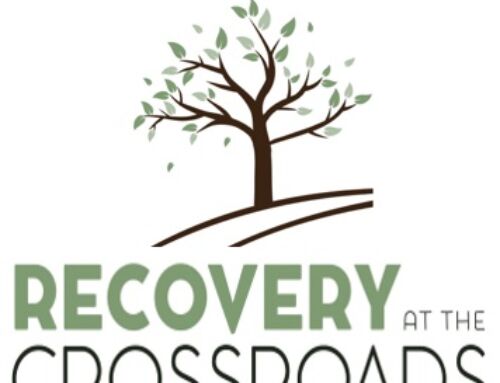Making the decision to enter rehab is a courageous step toward a healthier, more fulfilling life. However, uncertainty about what rehab is like can make the process feel overwhelming. Understanding what to expect can ease concerns and help individuals approach treatment with confidence.
Rehab is not a one-size-fits-all experience. Every person’s journey to recovery is unique, and different levels of care are available to meet individual needs. Some people benefit from structured outpatient programs that allow them to continue working or caring for their families, while others require more intensive treatment through a partial hospitalization program (PHP) or residential treatment. Regardless of the level of care, rehab provides the necessary tools, guidance, and support to help individuals break free from addiction and build a stable foundation for long-term sobriety.
By learning more about how a substance abuse treatment program works, individuals and their families can better prepare for the journey ahead and take the first step toward lasting recovery.
What to Expect in Outpatient Rehab
Outpatient addiction treatment is designed for individuals who need structured treatment while maintaining daily responsibilities such as work, school, or family obligations. Sessions are scheduled throughout the week, allowing clients to receive therapy and support without disrupting their routine.
In outpatient rehab, individuals can expect:
- Individual therapy sessions using evidence-based approaches like cognitive behavioral therapy (CBT) and dialectical behavior therapy (DBT).
- Group therapy to build peer support and learn from shared experiences.
- Education on addiction, coping strategies, and relapse prevention.
- Flexibility to continue working or managing personal responsibilities.

What to Expect in Rehab After Work
Rehab after work is a specialized outpatient addiction treatment program designed for working professionals. This program allows individuals to receive treatment in the evenings or on weekends, making it easier to balance recovery with career obligations.
Those participating in rehab after work can expect:
- Evening and weekend therapy sessions tailored for busy schedules.
- A focus on managing workplace stress and maintaining professional responsibilities.
- Support groups and therapy sessions that address real-life challenges in recovery.
- Continued access to medical and psychiatric support as needed.
What to Expect in a Residential Treatment Program
Residential rehab is an inpatient treatment program that provides 24/7 care in a structured and supportive environment for people seeking help for drug or alcohol addiction. This program is best suited for individuals who need intensive treatment and a safe space to focus solely on recovery.
During residential treatment, individuals can expect:
- A daily schedule that includes therapy, support groups, and holistic treatments.
- A structured environment free from outside triggers and distractions.
- Access to mental health professionals, medical staff, and addiction counselors.
- A strong sense of community and peer support.
- A focus on healing the mind, body, and spirit through therapy and holistic activities.
What to Expect in a Partial Hospitalization Program
A partial hospitalization program (PHP) is a step below inpatient treatment but more intensive than outpatient rehab. It is a treatment process that provides structured, comprehensive care without requiring an overnight stay.
In a PHP setting, individuals can expect:
- Full-day treatment, typically five to six days a week.
- A combination of individual therapy, group counseling, and holistic approaches.
- Medical and psychiatric care for co-occurring mental health conditions.
- A structured environment that promotes stability and personal growth.
- A transition plan to step down into outpatient rehab once progress is made.
What to Expect in Rehab Therapy and Treatment Approaches
Rehab for substance abuse includes various evidence-based and holistic therapies designed to help individuals understand and overcome addiction.
Cognitive Behavioral Therapy (CBT) in Rehab
CBT is one of the most widely used therapies in substance abuse treatment. It helps individuals identify negative thought patterns and replace them with healthier coping strategies. Through CBT, clients learn how to manage cravings, avoid triggers, and build a strong foundation for long-term sobriety.
Dialectical Behavior Therapy (DBT) for Emotional Regulation
DBT is a highly effective therapy for individuals struggling with emotional dysregulation, impulsivity, and co-occurring mental health disorders. It teaches skills such as distress tolerance, emotional regulation, and mindfulness to help individuals navigate challenges without turning to substances.
Group Therapy and Peer Support in Rehab
Group therapy is a vital part of the rehab experience. It allows individuals to connect with others who understand their struggles, share experiences, and gain support from peers. Sessions may focus on relapse prevention, coping skills, emotional processing, and building healthy relationships.
Holistic Therapies in Addiction Treatment
Many rehab programs incorporate holistic therapies to support overall well-being. These approaches help individuals heal physically, mentally, and spiritually. Common holistic therapies include:
- Yoga/meditation for stress management and mindfulness.
- Art and music therapy to encourage self-expression.
- Nutrition education to promote a balanced, healthy lifestyle.
- Exercise and fitness programs to improve physical health and mental clarity.
What to Expect in Medical and Mental Health Support During Rehab
Comprehensive medical and emotional support is a key part of the recovery process, especially for those dealing with both addiction and mental health challenges. Many individuals entering rehab require medical oversight to ensure a safe and comfortable detox, while others benefit from ongoing treatment to help stabilize their emotional well-being.
Medication-assisted treatment (MAT) may be used to ease withdrawal symptoms and reduce cravings, allowing individuals to focus on their recovery journey. In addition to MAT, specialized care is available for those struggling with anxiety, depression, PTSD, or other emotional health concerns. Addressing these underlying challenges is essential, as untreated mental health struggles can increase the risk of relapse.
Throughout rehab, individuals meet regularly with medical and mental health professionals who assess progress, adjust treatment as needed, and provide guidance on managing stress and emotions. This integrated approach ensures that both physical and emotional well-being are prioritized, helping individuals build a strong foundation for long-term recovery.
Meeting Spiritual and Cultural Needs in Recovery
Recovery is about more than just overcoming addiction—it’s about healing the whole person, including emotional, physical, and spiritual well-being. For Jewish individuals, faith, traditions, and cultural identity play a vital role in the recovery journey. Having access to a supportive environment that respects Jewish values can make the process more meaningful and effective.
For those who keep kosher, maintaining dietary laws is an essential part of daily life. At Recovery at the Crossroads, we provide kosher recovery options to ensure that Jewish individuals can focus on healing without having to compromise their religious practices. Our facility is committed to creating a culturally sensitive space where Jewish traditions are respected, allowing individuals to feel comfortable and supported in both their recovery and their faith. By addressing spiritual and cultural needs alongside addiction treatment, we help individuals build a strong foundation for lasting sobriety within a framework that honors their Jewish identity.
What to Expect After Rehab: Transitioning to Long-Term Recovery
Completing rehab is just the beginning of a lifelong recovery journey. Transitioning back into daily life requires careful planning and ongoing support.
Creating a Relapse Prevention Plan
A strong relapse prevention plan is essential for maintaining long-term sobriety. It provides structure, helps manage challenges, and ensures individuals have the right tools to stay on track.
- Identifying triggers and developing coping strategies. Triggers can be people, places, emotions, or situations that increase the risk of relapse. Recognizing these triggers allows individuals to create coping strategies, such as practicing mindfulness, engaging in physical activity, or using grounding techniques to manage stress. Avoiding high-risk situations and having a plan for handling cravings can make a significant difference in maintaining sobriety.
- Setting personal and professional goals for post-rehab life. Recovery isn’t just about avoiding substances—it’s about building a fulfilling life. Setting goals for career growth, relationships, and personal development provides motivation and a sense of purpose. Whether it’s pursuing new job opportunities, strengthening family connections, or prioritizing health and wellness, having clear objectives helps individuals stay focused and engaged in their recovery.
- Establishing a support system, including sponsors, mentors, and sober peers. A strong support network is one of the most important elements of relapse prevention. Surrounding oneself with positive, understanding individuals—whether through 12-step programs, therapy groups, or sober communities—provides accountability and encouragement. Regular check-ins with mentors, sponsors, or trusted friends offer guidance during difficult moments and reinforce long-term success in recovery.
By focusing on these key areas, individuals can create a relapse prevention plan that supports lasting sobriety and personal growth.
Returning to Work and Family Life After Rehab
Reintegrating into daily life after rehab can be both exciting and challenging. Many individuals find that rebuilding relationships with family and loved ones requires time, patience, and open communication. Trust may need to be restored, and setting healthy boundaries can help create a supportive home environment.
Managing stress is another crucial aspect of post-rehab life. Work, social obligations, and personal responsibilities can sometimes feel overwhelming, making it important to develop healthy coping strategies. Mindfulness techniques, exercise, and structured routines can help maintain emotional balance and prevent relapse triggers.
Ongoing therapy and support groups also play a significant role in long-term recovery. Continued counseling provides a space to navigate challenges, while support groups offer encouragement and accountability. By staying engaged in recovery-focused activities, individuals can maintain their progress and build a fulfilling, sober life.
Finding the Right Rehab Program
Selecting the right rehab program is one of the most important decisions in the recovery journey. Whether someone needs outpatient treatment, a structured partial hospitalization program (PHP), or residential care, it’s essential to find a program that fits their unique needs and lifestyle. A quality rehab center provides the tools, support, and expert guidance necessary to achieve lasting sobriety and overall well-being.
If you or a loved one is searching for compassionate and effective addiction treatment near Camden County, Recovery at the Crossroads is here to help. Our evidence-based programs serve individuals throughout Blackwood, Cherry Hill, Woodbury, Washington Township, and surrounding areas. Contact us today to learn more about our outpatient, PHP, and residential rehab options and take the first step toward a healthier future.


